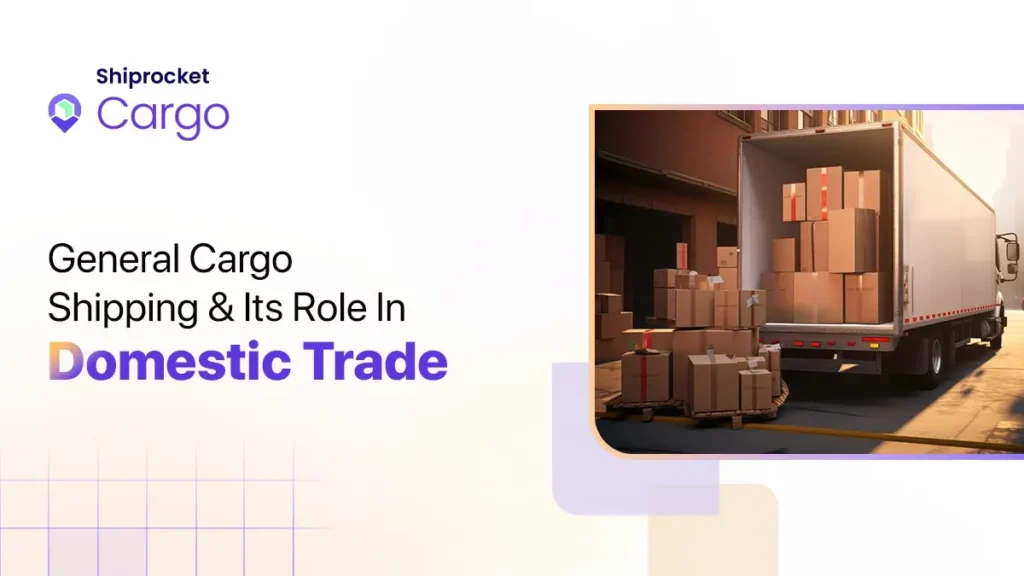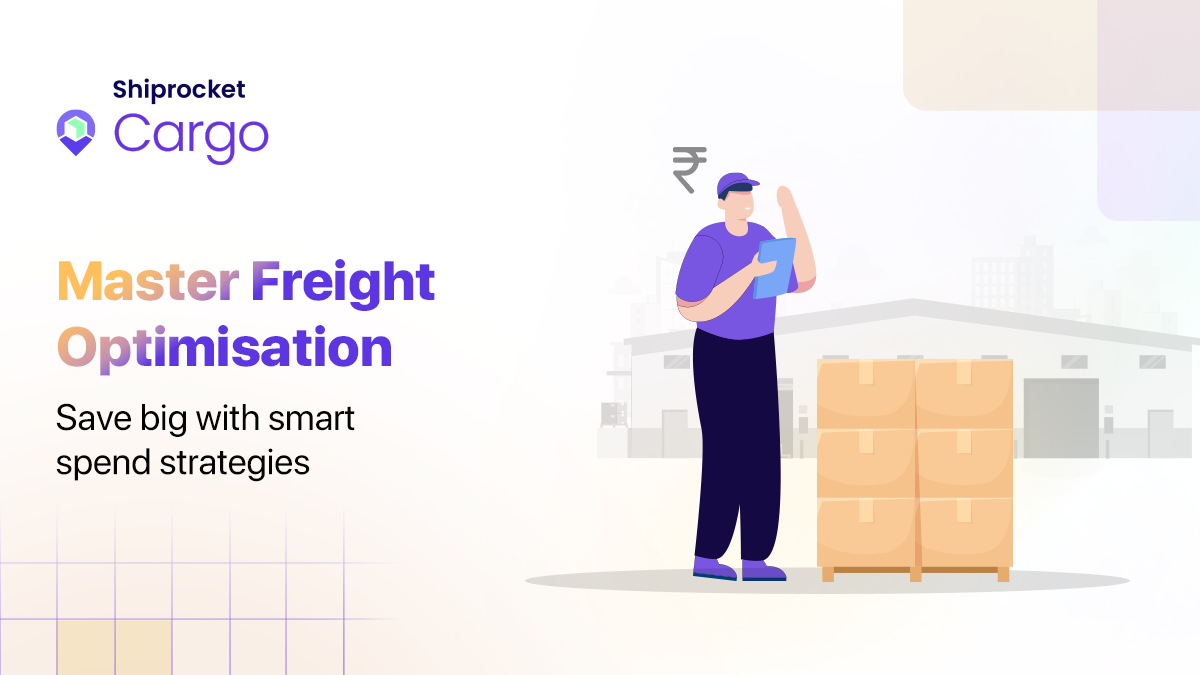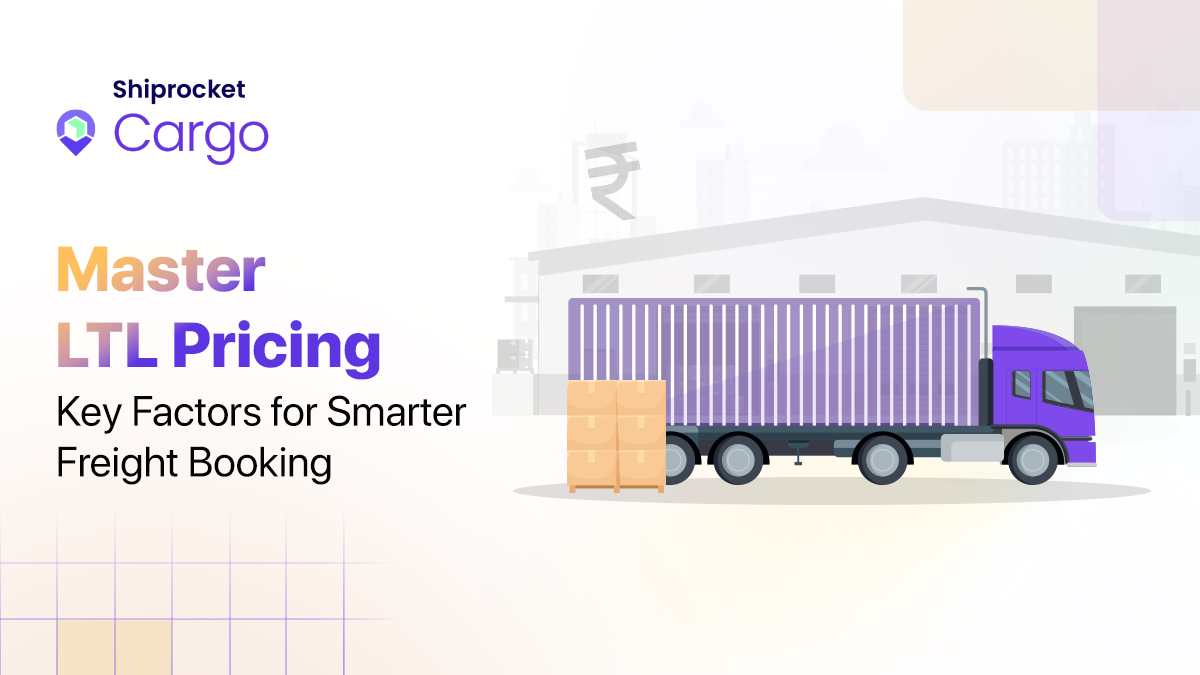General Cargo: Types, Pros & Cons, and Expert Tips
- Understanding General Cargo
- Importance of General Cargo in Trade and Logistics
- Breakdown of Different Types Of General Cargo
- Advantages of Shipping General Cargo
- Disadvantages of Shipping General Cargo
- Restrictions on Shipping Certain Products
- Best Practices for Preparing Cargo for Shipment
- Factors to Consider When Selecting a Freight Provider for General Cargo
- Conclusion
Do you know why general cargo shipping is one of the most essential elements of trade? It is a critical component because it enables businesses to ship a wide variety of goods from one location to another, providing customers with easy access to their products and services. However, that’s not the only reason.
There are several other benefits of general cargo shipping. Businesses can take advantage of these to grow their sales. So, let’s explore general cargo shipping in detail, including its benefits and drawbacks, types, best practices, and more.

Understanding General Cargo
In simple logistics terms, general cargo refers to goods that do not fall into the category of special goods, like perishables or dangerous items. They can be transported in standard containers. General cargo can either be loose or packaged. If packaged, it will be in a container, a pallet, a box, or a barrel. When the individual cargo units are collected from multiple shippers and combined into one larger unit, it’s generally referred to as groupage freight.
A variety of aircraft can transport general cargo, including passenger planes, cargo planes, and even helicopters. The type of aircraft used to transport general cargo will depend on the size and weight of the shipment. Bulk cargo requires specialised carriers or container ships for transportation.
Importance of General Cargo in Trade and Logistics
General cargo is essential for nurturing domestic trade and logistics. It facilitates the smooth flow of goods across cities and states. General cargo is quite versatile in nature, including almost every good that fuels the economy. In recent years, cargo shipping methods have transformed quite significantly. Today, it contains modern solutions, including advanced tracking and monitoring technologies, containerisation, etc. These technological advancements in cargo shipping ensure you can ship your goods efficiently. It is also quite beneficial for small and medium businesses. It helps eCommerce companies quickly access the market, expand their business operations, and thus compete with more giant corporations in the domestic markets.
Breakdown of Different Types Of General Cargo
General freight is the most popular type of cargo being shipped in the country. It can include a wide variety of items. However, it’s essential to remember that general cargo doesn’t include perishable and time-sensitive products.
The table below lists different categories of cargo and the shipping requirements for each type.
| Type of General Cargo | General Cargo Shipping Requirements |
| Clothes | Clothes are shipped in boxes or containers. Since these are lightweight, they have less stringent shipping requirements. However, one common challenge in shipping clothes is damage caused by moisture or pressure changes. |
| Furniture | Different pieces of furniture, including wooden tables, sofas, etc., are bulky and quite vulnerable to damage. Containers with protective covers can help you transport furniture effectively. |
| Edibles | Non-perishable edibles are mainly transported as general cargo. They often require temperature-controlled conditions. |
| Beverages | Beverages also take up a good portion of general cargo. These can include fine wines, bottled water, etc. Depending on the type of beverage you’re shipping, you may require special storage conditions or even refrigeration. For instance, wines must be transported in temperature-controlled environments to maintain their taste and quality. |
| Equipment and machinery | This category includes small electronics and heavy machinery. Fragile electronics may have to be packaged in shock-proof packaging materials, and larger machinery will require special equipment for loading and handling. |
| Construction material | This category includes tiles, bricks, cement, etc., forming a significant portion of general cargo. Extra caution is practiced while shipping to avoid damage, considering their size and weight. |
| Agricultural goods | Agricultural products include grains, fruits, and vegetables that are not easily perishable. They may require unique ventilation systems, refrigeration, or temperature-controlled storage. |
| Electronic goods | Electronic goods, such as smartphones, home appliances, computers, and other devices, make up a significant portion of general cargo. |
| Personal goods | Personal goods are of diverse types. Their shipping conditions will depend on individual items. |
Advantages of Shipping General Cargo
Let’s look at some of the benefits of general cargo shipping.
Cost Optimisation
You can consolidate several more minor cargoes into a single unit. It can help you save much more money on transportation than sending several shipments individually.
More Profit and Lower Losses
Cost optimisation means more profits and fewer losses. General cargo shipping results in higher profit margins for shipping companies. Moreover, when you properly choose packaging materials that are neither too heavy nor take up a lot of space and do not compromise the safety of the product, you can minimise the shipping charge. When your cargo is less damaged, the costs associated with them also reduce.
Multiple Shipping Options
General cargo shipping offers several transportation options. Given the different types of cargo, various shipping methods are available. These include container ships, cargo ships, etc. You can also ship cargo via air, truck, train, and more.
Flexibility
General cargo shipping offers excellent flexibility in the size, weight, shape, and type of your shipment. Your cargo can range from a single unit to a large package. Thus, it caters to different individual and business needs.
Disadvantages of Shipping General Cargo
Here are the major drawbacks of shipping general cargo.
Complex Handling
Since a wide range of products form part of cargo, handling them is quite complex. It gets worse when a train or merchant ship carries different types of products that require different storage conditions.
High Chances for Damage
Given the variety of items, the possibility of damage to general cargo during transit also increases. Hence, transportation demands proper handling and precaution.
Time-Consuming Process
Loading and unloading general cargo can be a time-consuming process. It takes longer than bulk cargo and FTL shipping. Often, several small shipments are required to be collected. This affects the shipment’s turnaround time, delaying deliveries.
Risk of Shipment Delays
When a range of Bulk cargo is gathered and sorted, the risk of delayed shipments increases significantly. This can negatively impact your business, as your customers expect timely deliveries.
Restrictions on Shipping Certain Products
General cargo shipping often restricts the shipment of dangerous and hazardous items. Several risk factors are involved in shipping dangerous chemicals, perishable items, and time-sensitive goods.
Administrative Costs
If you send multiple small shipments instead of a single unit, the administrative cost of handling these shipments can be significantly high. Smaller, multiple shipments require extensive planning and coordination to manage effectively.
Best Practices for Preparing Cargo for Shipment
To properly prepare your general cargo for shipment, you should keep the below points in mind
Proper Packaging, Labelling, and Marking
For packaging, you should use strong boxes, crates, or containers, depending on your goods. The packaging materials should match the size and weight of your shipment. If your products are fragile, you must protect them from any damage during transit. You can use foam inserts, bubble wraps, or airbags for the same. You should also seal all packaging to prevent any tampering with the shipment. It will also protect your shipment from environmental factors, including dust, moisture, etc.
Once you have packed the shipment, it’s time to properly label it with all the essential information. Mentioning the destination address is a must. You can also include any precautions or specific handling instructions. Make sure the instructions are easily readable and secured correctly.
Accurate and Complete Documentation
Make sure all the required documents are complete and handy. These include commercial invoices, bills of lading, licenses or permits , etc. Proper documentation will help you avoid customs delays.
Weight Distribution
This is important for cargo shipping. To prevent shifting during transit, evenly distribute the weight within containers. If you overload one side of the cargo, it may tip and cause damage. Instead, you can use pallets for proper handling and secure the goods with shrink wrap or straps.
Pre-Shipment Inspections
Perform thorough pre-shipment inspections. This will help verify whether you have appropriately packed and labelled your goods. Double-check all documents as well. Pre-shipment inspections can also help you identify gaps or issues that must be addressed before shipping.
Insurance for Your Cargo Shipment
Get comprehensive insurance coverage for your general cargo. Consult your freight provider regarding insurance coverage. You should invest in an insurance policy that protects your goods from potential risks during transit. It’ll help you minimise losses in the long run.
Tracking and Monitoring Your Shipment
Make sure you track and monitor your shipment. Most freight providers allow you to track progress in real-time, which will help you identify any issues promptly and prevent potential delays.
Select the Right Freight Provider
Selecting the right freight provider is the most essential requirement of general cargo shipping. Many factors will impact your decision, ranging from your budget to the services they offer.
The most important factors you should consider when selecting the right freight provider are discussed below.
Factors to Consider When Selecting a Freight Provider for General Cargo
Here are the essential factors you should consider while selecting a freight provider for your general cargo shipment.
Range of Services and Specialisations
Firstly, analyse the range of services the freight provider offers. See whether they offer what you’re looking for. You should also ensure that they can handle any special requirements you may have for general cargo shipping.
Cost and ROI
Your budget, the cost the freight provider’s charging, and the return on investment you’ll get are the most important factors you should consider before making a decision. You can request quotes from multiple freight providers with clear breakdowns of costs. Compare their pricing plans and identify whether there are any hidden charges. It’ll help you avoid any unexpected expenses.
Reliability and Reputation
The freight provider’s reputation is the biggest indicator of their reliability and service quality. Read customer reviews and testimonials online to assess their record of timely deliveries. See what their customers say about how they handle the cargo. Before making the decision, you should make sure they have prior experience in handling cargo. They should have the expertise to anticipate and overcome any challenges.
Customer Service, Communication, and Transparency
Look for a freight provider who keeps you informed throughout the shipping journey. Their customer support team should quickly address any issues you may face. A freight provider offering round-the-clock customer service should be the ideal option.
Technological Capabilities
You should look for a freight provider who employs the latest technologies. These include automation, data analysis, real-time tracking, etc., for more accurate and efficient shipping services.
Flexibility and Scalability
The freight provider should be flexible enough to manage your changing shipping requirements. They should be able to carry out any last-minute changes without complaints or delays.
Sustainability Practices
Lastly, analyse a freight provider’s commitment to sustainability and eco-friendly practices. These can include carbon offsetting solutions, fuel-efficient fleets, etc., showing their dedication to reducing the environmental impact of general cargo shipping. Working with a sustainable freight provider can also improve your brand reputation.
Conclusion
Cargo shipping is an essential part of domestic trade, supporting economic development. It enables the movement of a wide variety of goods within the borders to any location. In most cases, it’s a cost-effective solution that offers great flexibility and efficiency to businesses of all sizes. Though you may face some challenges when shipping your general cargo, following the best practices listed above and carefully picking a freight provider can make a huge difference.




